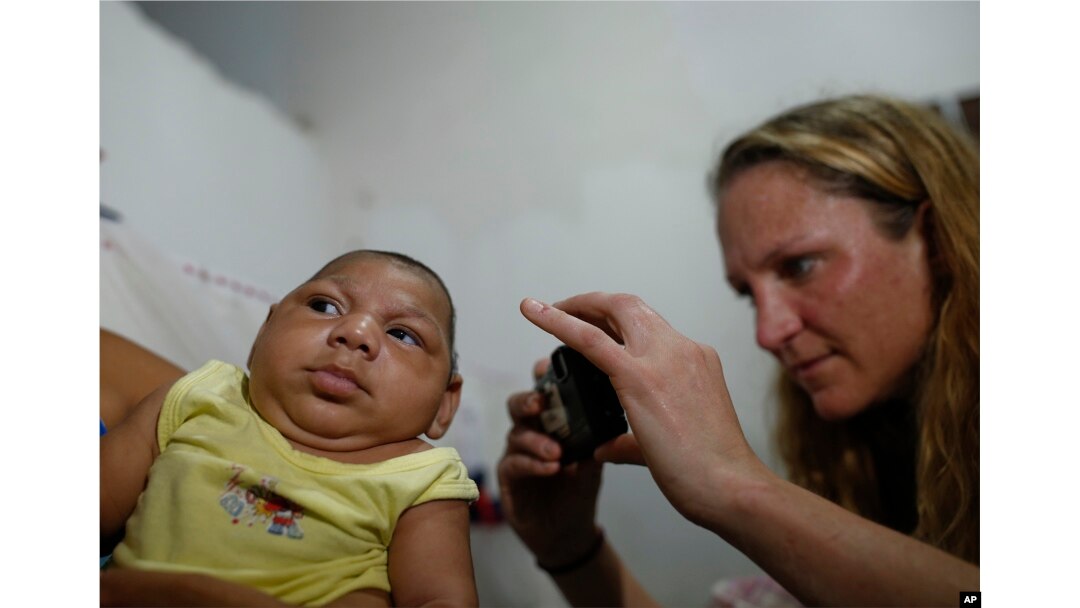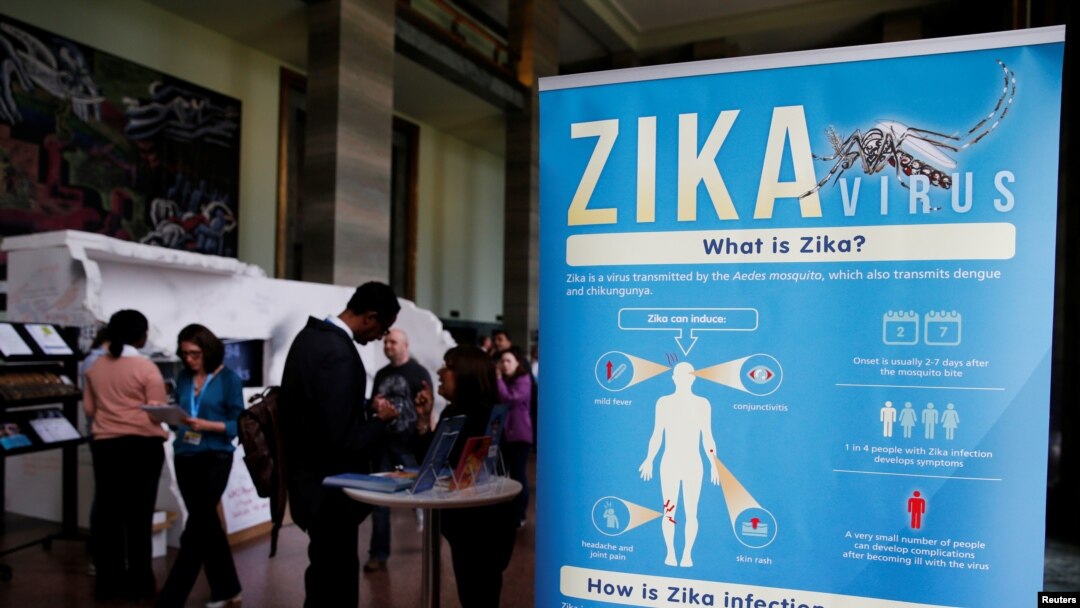In February, the World Health Organization declared the Zika epidemic a global public health emergency. Since then, drugmakers have been working to create vaccines that could protect against it.
Two have proven extremely effective in mouse experiments.
One of the drugs is a so-called DNA vaccine, engineered from a single Zika viral protein. The other is a purified inactivated, or killed, virus — the same technology used to make the original polio vaccine.
Dan Barouch, a professor of medicine at Beth Israel Deaconess Medical Center at Harvard University and an infectious diseases specialist, says both vaccines stimulate the production of immune system antibodies that protect mice from infection by the Zika virus.
"And the protection was striking. The protection was complete,” he said. “All of the mice that received the vaccine showed no virus in the bloodstream after challenge, whereas all the mice that did not receive the vaccines became infected and had high levels of virus in the bloodstream. One of the important points is that the protection could be achieved by a single immunization."
Researchers describe their work in the journal Nature.

Pediatrician Alexia Harrist from the United States' Centers for Disease Control and Prevention (CDC) takes a picture of 3-month-old Shayde Henrique who was born with microcephaly, after examining him in Joao Pessoa, Brazil, Feb. 23, 2016.
Brazil has been particularly hard hit by Zika. Many pregnant women who are infected with the virus give birth to babies with a congenital defect called microcephaly, which causes an abnormally small head.
The children suffer from a host of problems, including intellectual disability, seizures and motor problems. The virus also has been implicated in Guillain-Barre syndrome, a paralytic illness that mostly strikes adults.
Nelson Michael, director of the military HIV program at Walter Reed Army Institute of Research in Maryland, is co-author of the Nature article.
He says the vaccines are in production now, and researchers hope to begin human trials in October.
"I would say, at this point, no one is really in a position to say if it's going to jump ahead of expanded safety studies. But I can tell you it's going to move very quickly," he said.
Lediane da Silva, who is eight months pregnant, is seen in the shanty town of Beco do Sururu, Recife, Brazil, Jan. 29, 2016.
While pregnant women are most at risk from Zika, Michael says the initial trials will begin with healthy women who could become pregnant.
If enough people are vaccinated, he added, that could extend protection to pregnant women, who might not need the vaccine.
Both vaccines could be available as early as next year.


